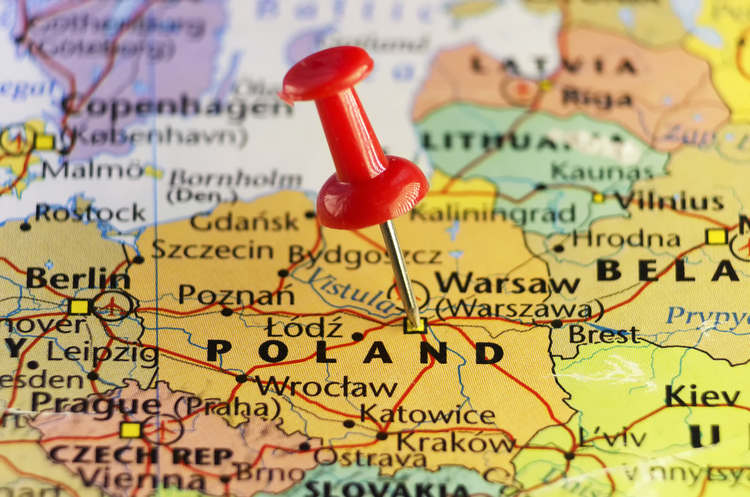Derkach said that most of the Polish demands regarding the passage of Ukrainian carriers are unrealistic
Starting November 3, Polish carriers are planning to block the border with Ukraine for two months and have put forward a number of their own demands to open it

Most of the Polish carriers' demands, which are why they plan to block a number of checkpoints on the Ukrainian-Polish border, are unrealistic.
Source. This was reported by Deputy Minister of Communities, Territories and Infrastructure Development Serhiy Derkach to the Interfax-Ukraine agency.
"The requirement to return to the system of issuing permits for Ukrainian carriers to work in the European Union is unrealistic. Currently, there is an agreement between Ukraine and the EU under which Ukrainian carriers operate without permits in the EU. The agreement on the liberalization of freight transportation, under which this happens, is valid until the end of June 2024. And it is important to understand that the agreement works both ways: our carriers travel without permits, and European carriers travel to Ukraine under the same conditions. That is, it is simply impossible to cancel the agreement at the level of the Polish government," says Derkach.
This is not the first time Polish carriers have voiced such demands, he noted. Most likely, they want to lay the groundwork for the next year and influence the negotiations on the prolongation of the agreement, the deputy minister believes.
The official added that Polish carriers are the largest players in the freight transportation industry in Europe, accounting for more than half of all trucks transporting goods across Europe.
At the same time, Ukrainian carriers transport mainly from and to Ukraine, not between European countries.
"They can in no way influence freight tariffs by bringing them down, as some people try to claim," the deputy minister emphasized.
According to Derkach, the introduction of a separate queue for trucks with European license plates will be unfair not only to Ukrainian but also to carriers from other countries.
"At the border, we do not have a separate queue for Ukrainian drivers – all those who have registered go through. Carriers from Turkey and other countries also travel through Ukraine. If we introduce a separate queue, they will have to wait for vehicles with EU license plates to pass. There is also no separate queue for Ukrainian trucks in any EU country," the deputy minister said.
As for the separate queues for empty trucks, there are currently two checkpoints on the border with Poland – Ustyluh-Zosyn and Nyzhankovychi-Malhowice.
"It is unrealistic to open additional checkpoints for the passage of only empty vehicles, because Ukraine is interested in having as many checkpoints as possible for the departure of loaded vehicles, which would increase exports and strengthen our economy," Derkach explained.
Background. As reported, the Ministry of Reconstruction received reports of a blockade of checkpoints on the Ukrainian-Polish border and initiated a meeting with officials from Poland and the European Commission to ensure stable border operations.
Earlier, the International Transport Association reported that starting November 3, Polish carriers plan to block the border with Ukraine for two months. According to the association, the carriers have set conditions:
- return to the system of issuing permits for Ukrainian carriers,
- toughening the rules of transportation according to the ECMT,
- introduction of a separate queue in the eCheck for vehicles with EU license plates,
- creation of a separate queue for empty trucks, and
- ensuring access to the "Shlyakh" system.
Earlier, we told you that Ukrainian-Polish relations are undergoing another test, this time with logistics. Read about the threats of a blockade on the border with Poland and the impact of political processes in Mind.
If you have read this article to the end, we hope that means it was useful for you.
We work to ensure that our journalistic and analytical work is of high quality, and we strive to perform it as competently as possible. This also requires financial independence. Support us for only UAH 196 per month.
Become a Mind subscriber for just USD 5 per month and support the development of independent business journalism!
You can unsubscribe at any time in your LIQPAY account or by sending us an email: [email protected]



